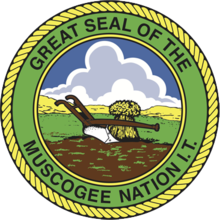Native American Heritage Month Resources

Public forum : Native American women in action : many fronts, one struggle
Radical Women , Sponsor/Advertiser, and U.S Freedom Socialist Party, photographer by Norrgard, Lenore. Public forum: Native American women in action: many fronts, one struggle. Photograph. Retrieved from the Library of Congress,

Se-Quo-Yah
Bowen, John T., Approximately ?, Lithographer, et al. Se-Quo-Yah / R.T. ; drawn, printed & coloured at I.T. Bowen's Lithographic Establishment, No. 94 Walnut St. [Philadelphia: Published by F.W. Greenough] Photograph. Retrieved from the Library of Congress,

Eskimo wedding, St. Michael, Alaska.
Huey & Laws, Copyright Claimant. Eskimo wedding, St. Michael, Alaska. July 1st, 10 P.M. Photograph. Retrieved from the Library of Congress,

Tipi with sign during the "Longest walk"
Leffler, Warren K, photographer. Tipi with sign "American Indian Movement" on the grounds of the Washington Monument, Washington, D.C., during the "Longest walk". Photograph. Retrieved from the Library of Congress,

A Navajo blanket weaver
A Navajo blanket weaver. [Detroit: Detroit Photographic Co] Photograph. Retrieved from the Library of Congress,

We remember Wounded Knee, 1890-1973
Carter, Bruce, Artist. We remember Wounded Knee, -1973. [Between 1973 and 1980] Photograph. Retrieved from the Library of Congress,

Eagle dancer (left) / Crumbo.
Crumbo, Woody, Artist. Eagle dancerleft / Crumbo. Photograph. Retrieved from the Library of Congress,
Muskogee (Creek) Tribe and Native Tribes of Georgia
The Muskogee (Creek) are the indigenous people who previously lived on the land that is now Bulloch County and Statesboro. They are named after the Ocmulgee Creek by white settlers, originally called themselves Isti or Istichata, but began to identify themselves as Muscogee soon after Europeans arrived.
Most Creeks were forced to move to Oklahoma in the 1800's, like other southern tribes. The Muscogee Creek Nation of Oklahoma has nearly 100,000 citizens today, and has its own government, laws, police, and other essential community services.
Other Creek people are living in southern Florida as part of the Seminole tribe, in the Poarch Creek band in Alabama, or scattered throughout the original Muscogee homelands.
Official seals of Muscogee Creek descendant tribes and nations:
Click on each name or seal to learn more about the tribe. Left to right: The Seminole Tribe of Florida, The Muscogee Nation of Oklahoma, The Poarch Creek Indians of Alabama, and The Lower Muskogee Creek Tribe of Georgia.
Did you know?
Georgia's Native American tribes were forced to move west during the 19th century, despite a Supreme Court ruling that it was unconstitutional to evict them from the state. Most tribes that once were native to Georgia ended up on reservations in Oklahoma. Today, there are three state-recognized tribes, those are The Lower Muskogee Creek Tribe, Cherokee of Georgia Tribal Council, and Georgia Tribe of Eastern Cherokee.
Information retrieved from Native-Languages.org



